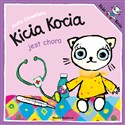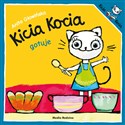Kategorie
- Zabawki
- Puzzle
- Gry planszowe
-
 Szybka wysyłka
Szybka wysyłka
- Promocja!
- Albumy
- Audiobooki
- Bajka i baśń
- Beletrystyka
- Biografie
- Ezoteryka
- Fantastyka
- Filmy
- Historyczne
- Hobby
- Horror, literatura grozy
- Ikonografia
- Kalendarze
- Komiksy
- Kryminały
- Ksiązki dla dzieci
- Ksiązki dla młodzieży
- Książki kucharskie
- Książki kucharskie i diety
- Legendy, podania, mity
- Literatura
- Literatura erotyczna
- Literatura faktu
- Mapy i przewodniki
- Muzyka
- Nauka i Naukowcy
- Nauki Przyrodnicze
- Nauki Społeczne
- Nuty i śpiewniki
- Podręczniki szkolne
- Popularno-naukowe
- Poradniki
- Religia i wiara
- Romanse
- Science-fiction
- Sensacyjne i thrillery
- Słowniki językowe
- Sport
- Sztuka i fotografia
- Technika
- Wojskowość i wojny
- Wydawnictwa naukowe i popularno-naukowe
- Zdrowie i uroda
- Zestawy. Torby. Plecaki. Tornistry. Worki
Newsletter
Bestsellery
| |
| |
| |
| |
| |
| |
| |
| |
| |
| |
| |
| |
| |
| |
| |
| |
| |













Powered by nopCommerce
Copyright © 2024 Polska Księgarnia Internetowa. All rights reserved.























